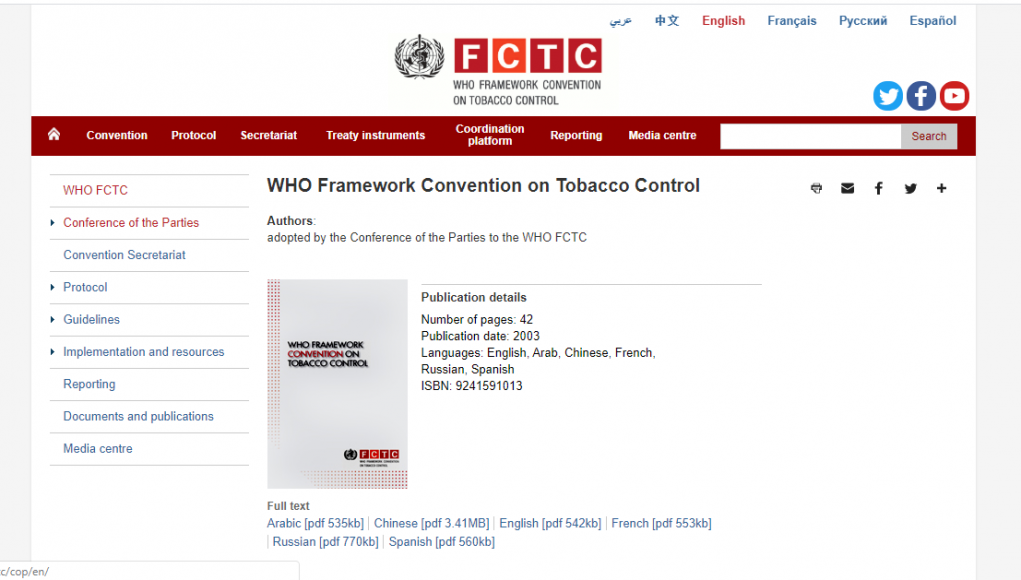A press release by the WVA emphasized the need that the WHO recognizes its ineffective methodology and consults with science and consumers in order to save millions of lives. “We present below our three main requests from the World Health Organisations ahead of their tobacco control conference COP9 in November:
WHAT CONSUMERS WANT FROM THE WHO:
- THE RECOGNITION AND INCLUSION OF TOBACCO HARM REDUCTION METHODS
- THE RIGHT TO ACCESS AND AFFORDABILITY FOR CONSUMERS
- THE EFFECTIVE PARTICIPATION OF CONSUMERS IN DISCUSSIONS AT COP9”
Countries following the WHO’s guidance keep struggling with higher smoking rates
In line with these arguments, a recent 59-page white paper discussing case studies conducted in several countries to measure smoking cessation-related progress, has shown that those following the World Health Organization’s guidance, keep struggling with higher smoking rates.
Titled “Vaping Works. International Best Practices: United Kingdom, New Zealand, France and Canada,” the publication was released by the Property Rights Alliance. It consisted of four respective case studies by Christopher Snowdon (Institute of Economic Affairs, the UK), Louis Houlbrooke (New Zealand Taxpayers’ Union, New Zealand), Patrick Coquart (IREF, France), and Prof Ian Irvine (Concordia University, Canada), and confirmed what public health experts have been pointing out all along.
“Countries applying progressive Tobacco Harm Reduction policies are enjoying a significant fall in smoking rates. Whereas those following the World Health Organization’s guidance continue to experience excessive smoking-related illnesses and deaths,” said the Coalition of Asia Pacific Tobacco Harm Reduction Advocates (CAPHRA).
CAPHRA Executive Coordinator Nancy Loucas, said that thankfully the release of this significant data coincides with the WHO’s Framework Convention on Tobacco Control (FCTC) which is holding its infamous COP9 session this month. “Ultimately, this paper proves countries that embrace vaping, such as France, the United Kingdom, New Zealand and Canada, have witnessed a decrease in smoking rates that is twice as fast as the global average,” she said.













